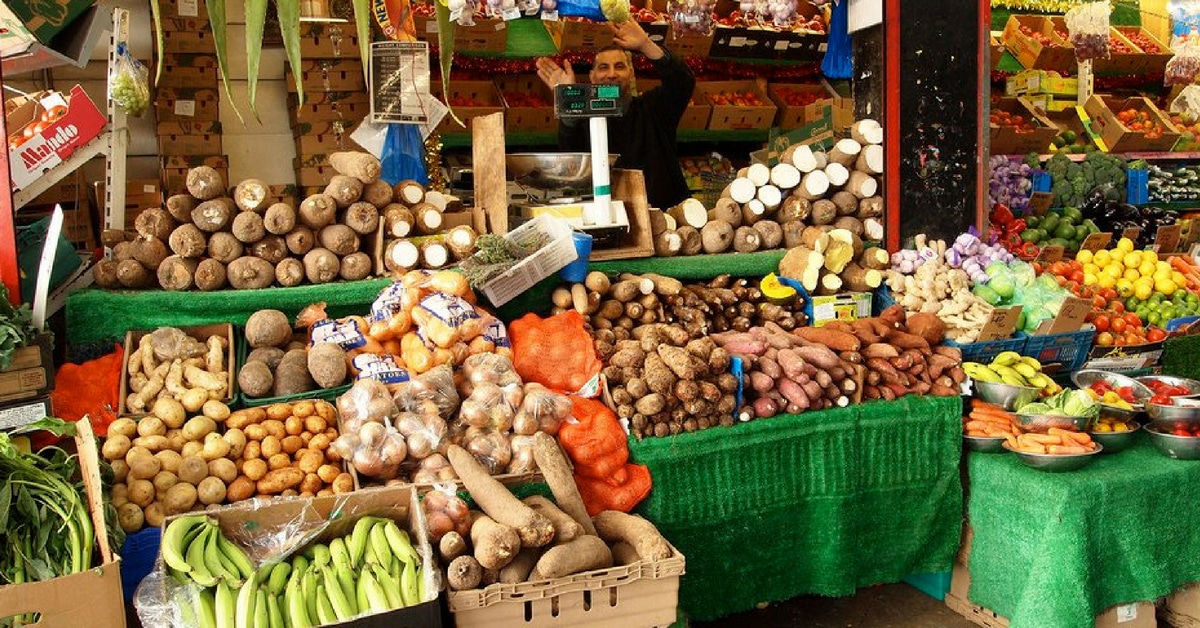Nigeria News
Nigerians Kick As Food Prices Remain High Despite Dollar Crash, Naira Appreciation

Nigeria’s economy has received a significant boost with the Naira appreciating to N1,300 against the US dollar, sparking hope for a potential recovery.
This development has come as a relief to many, especially after the Naira’s value plummeted to an all-time low of nearly N2,000 against the dollar just a few weeks ago.
Naija News reports that the recent appreciation has given rise to expectations of a potential reduction in food prices and increased food production. However, farmers and Civil Society Organizations (CSOs) are puzzled that this development has yet to reflect in food production and prices.
Despite the Naira’s gain of about N700 over the past four weeks, prices of farm inputs remain high, and interest rates are still beyond what farmers can afford. This has raised concerns among stakeholders, who are worried that the appreciation may not have a lasting impact on the agricultural sector and food production.
The agricultural sector is a critical component of Nigeria’s economy, and any fluctuations in the sector can have far-reaching consequences on the overall economy.
Speaking to Vanguard, Ibrahim Kabir, National President of the All Farmers Association of Nigeria (AFAN), emphasized that a stronger Naira leads to higher purchasing power, making food more affordable and a prerequisite for food security.
He expressed hope that the costs of farm inputs would decrease, resulting in lower production costs and more affordable food for Nigerians.
Kabir suggested that the government should ensure a stable supply of energy and maintain an enabling environment for production, noting that energy is a critical component of agricultural production, and any disruption in the supply of energy can have devastating effects on food production.
On his part, Daniel Okafor, National President of the Potato Farmers Association of Nigeria (POFAN), disagreed, stating that the Naira appreciation has not impacted food prices.
Okafor said: “Naira appreciation to me has not impacted in any way to price of food in the country. The food in circulation today is still the output of former production, which purchase of agricultural inputs were at high prices.
“Farmers bought their inputs at high cost so you cannot force them to sell their produce at low prices because of Naira appreciation.
“Moreover, if we should tell ourselves the truth was Naira depreciation actually the cause of high cost of food? To me, the answer is no, it has been as a result of insecurity and high cost of labour and agricultural inputs.
“Basically, planting season is just setting in and I can predict what the cost of Agricultural inputs will look like as a result of the Naira appreciation. Till the season comes fully we can then know whether there is positive or negative impacts of Naira appreciating.
“The positive impact of Naira appreciation will only be felt by farmers when we see the decrease in the prices of agricultural inputs and the likes. We can express our feelings when we are able to get labour and other agricultural inputs at affordable prices and on time.”
Engr. Daniel Ijeh, an agribusiness expert and CEO of EA Daniels Farm, emphasized that sustained Naira appreciation would lead to increased productivity and reduced food prices.
He advised the government to upscale agricultural expertise, address farm finance, and revisit land tenure issues, especially in southern Nigeria.
Ijeh told Vanguard: “Price is a function of demand and supply. The effect will be immediate as with many kinds of disruption. It might reflect in the future if it is sustained.
“If the Naira appreciation is sustained over extended period, supply will go up thereby leading to a reduction in price.
“I think the uncertainty and unpredictability of farm input prices will reduce with this little appreciation of Naira. This will create stability in the price of farm inputs, if not for an extended period but for the short term in the appreciation is sustained.
“This appreciation may make more farmers increase production thereby increasing the supply of food items which will result in a decrease in price.”
Andrew Mamedu, Country Director of ActionAid Nigeria (AAN), acknowledged the Naira appreciation but urged the government to reconsider high lending rates and implement measures to boost food production.
He identified insecurity, inflation, and high exchange rates as factors driving up food prices.
Mamedu emphasized that the government must take a holistic approach to addressing the challenges facing the agricultural sector, including providing affordable credit to farmers, improving security, and reducing inflation.
The Chairman, All Farmers Association of Nigeria, AFAN, Sokoto State Chapter, Jamilu Muhammad, lamented that Naira appreciation had not yet impacted food production, citing high petrol costs and low mechanization as significant challenges.
He emphasized that the appreciation would primarily affect imported food items, and a reduction in PMS pump prices would be necessary to see a tangible impact on food prices.
Muhammad noted that farmers in Sokoto State are facing significant challenges, including high petrol costs, inadequate mechanization, and insecurity, emphasizing that addressing these challenges is critical to ensuring a sustained impact of Naira appreciation on food production.
Muhammad said, “For now it (Naira appreciation) is not really reflecting, and what is responsible for high food prices are basically local factors, and they have little to do with Naira appreciation for now, which is about fuel, Premium Motor Spirit.
“We use fuel at the rate of 800 per litre to do irrigation. So if Naira appreciates, how does that affect the cost of food production except the pump price of PMS drops?
“The Naira appreciation impacts imported food items, but if the PMS pump price reduces it will also help food prices reduce, if not we are just going to witness little changes.
“What farmers can point at as impact of Naira appreciation is on imported farm inputs, and if farmers buy farm inputs in the next three months, then we will begin to see the impact, and that means the price of Urea, NPK will reduce, and in the near future the price of food will drop but, at the moment, we have already done the production with costly farm inputs and food prices will still be high, but, maybe in the next two months, it will drop because the price of agrochemical will drop and that will impact our production.
“We need more solar-powered generators, earth dams, and local production of farm inputs; currently we have only three companies in Nigeria producing Urea and NPK fertilizers but we need 20 to boost food production and reduce high food prices.”












